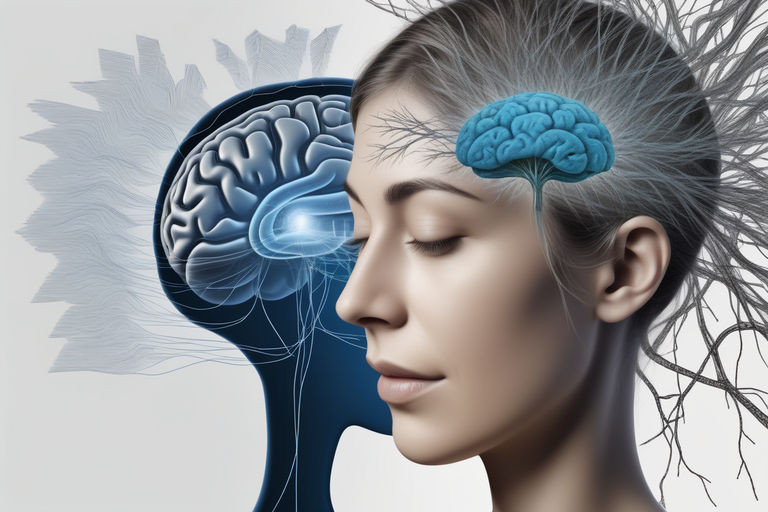Introduction
In an age where digital devices are integral to our everyday lives, the concept of a digital detox has become increasingly appealing. From smartphones to laptops, our constant connectivity is not without consequences. Research reveals significant impacts on our brains when we take a break from digital devices. This article delves into the science behind digital detox and explores what actually happens to your brain when you disconnect.
The Impact of Digital Devices on the Brain
Constant Connectivity and Brain Overload
Digital devices provide endless streams of notifications, messages, and updates, keeping our brains in a perpetual state of alertness. This constant connectivity demands continuous attention and multitasking, which can lead to cognitive overload. Studies have shown that this digital overload can decrease attention span, increase stress, and even diminish overall cognitive capacity.
The Neurological Effects of Screen Time
Extended screen time is linked to changes in the brain’s structure and function. For instance, excessive use of digital devices is associated with reduced grey matter in regions related to cognitive control and emotional regulation. Furthermore, the blue light emitted by screens can disrupt melatonin production, impairing sleep quality and, consequently, brain health.
What Happens During a Digital Detox?
Restoration of Cognitive Functions
Disconnecting from digital devices, even for a short period, allows the brain to ‘reset.’ Without the constant demands of multitasking and processing digital information, cognitive resources can shift towards deeper thinking and concentration. Studies have demonstrated improvements in memory, attention span, and problem-solving skills following periods of digital detox.
Enhancement of Neuroplasticity
Neuroplasticity refers to the brain’s ability to reorganize itself by forming new neural connections. Engaging in activities that don’t involve screens, like reading, meditating, or outdoor activities, can stimulate different areas of the brain, enhancing neuroplasticity. This increased neural adaptability is crucial for learning new skills and maintaining cognitive health.
Reduction in Stress and Anxiety
The barrage of digital information can be a significant source of stress and anxiety. During a digital detox, cortisol levels — the stress hormone — can decrease, leading to enhanced relaxation and mood. The absence of digital stimuli provides a mental space for mindfulness and meditation, which have well-documented benefits in reducing anxiety and improving emotional stability.
Long-Term Benefits of Regular Digital Detoxes
Improved Sleep Patterns
One of the most immediate benefits of a digital detox is improved sleep quality. Reducing screen time, especially before bedtime, can help recalibrate your body’s circadian rhythm and increase melatonin production, leading to deeper and more restorative sleep.
Enhanced Interpersonal Relationships
Digital detoxes can lead to better personal interactions. By putting away digital devices, individuals are more likely to engage in meaningful face-to-face conversations, which can strengthen relationships and enhance empathy.
Boost in Creativity and Productivity
Unplugging from technology can also boost creativity. The brain is not meant to be perpetually stimulated by digital inputs; it needs downtime to generate new ideas and perspectives. Furthermore, individuals often report higher productivity levels when they return to work after a detox, as they are able to focus more intensely without the constant interruptions from their devices.
How to Implement a Successful Digital Detox
Set Realistic Goals
Start with manageable goals, such as avoiding digital devices for a few hours each day or dedicating specific days for a digital detox. Gradually increase the duration as you become more comfortable with the experience.
Create a Detox Plan
Plan activities to replace the time you would typically spend on digital devices. Whether it’s picking up a new hobby, spending time outdoors, or reconnecting with friends and family, having a plan can make your digital detox more enjoyable and successful.
Prepare for Withdrawal
It’s normal to feel withdrawal symptoms like anxiety, irritability, or boredom when you first start a digital detox. Prepare for these feelings and remind yourself why you are doing the detox. The benefits to your mental and physical health are well worth the temporary discomfort.
Conclusion
The science behind a digital detox is compelling, demonstrating significant benefits for our brains and overall well-being. By regularly disconnecting from digital devices, we give our minds the much-needed break to restore, recharge, and rejuvenate. As our society continues to grapple with the challenges of a digital world, embracing the practice of digital detox can be a transformative step toward a healthier, more mindful existence.


